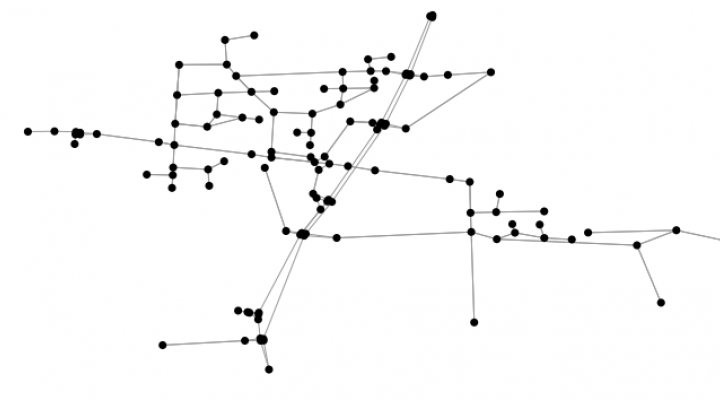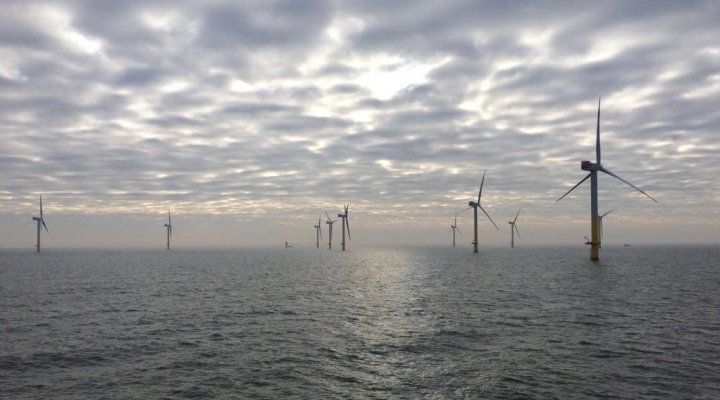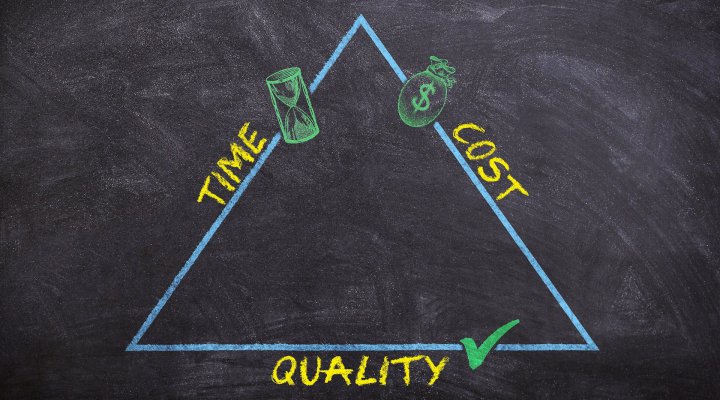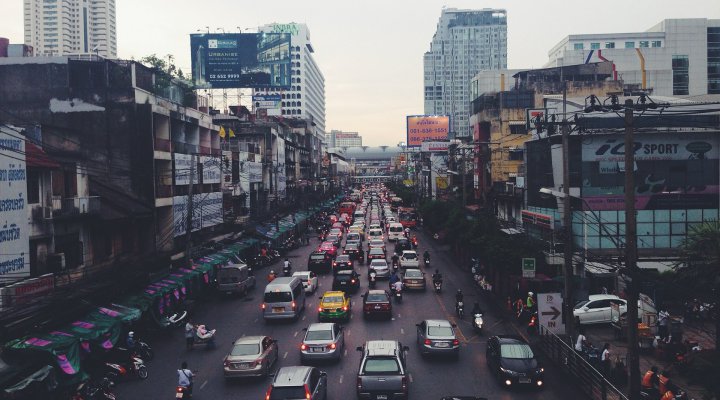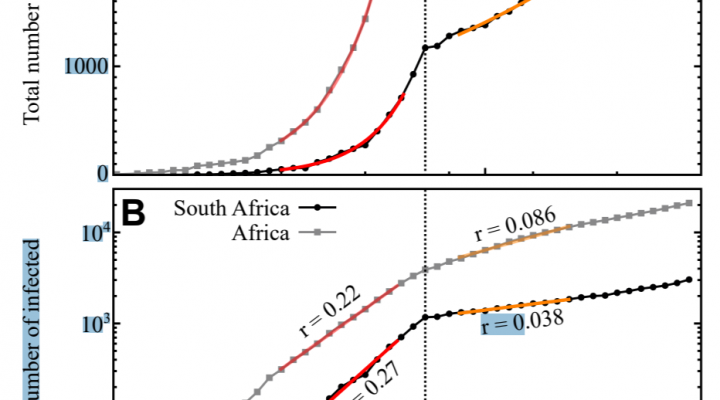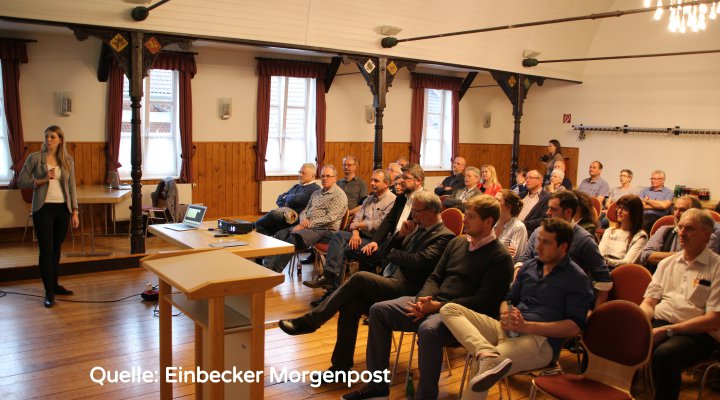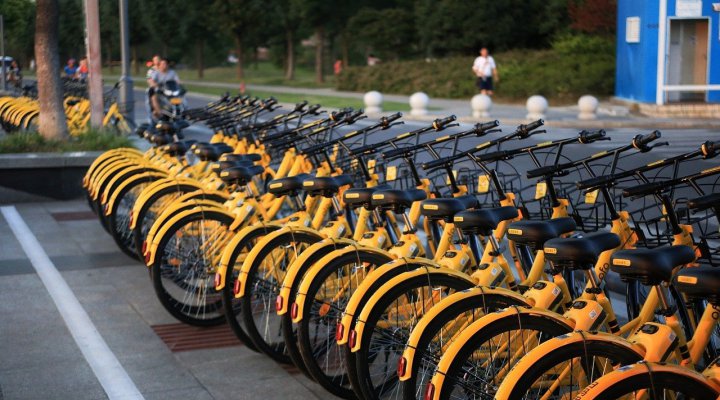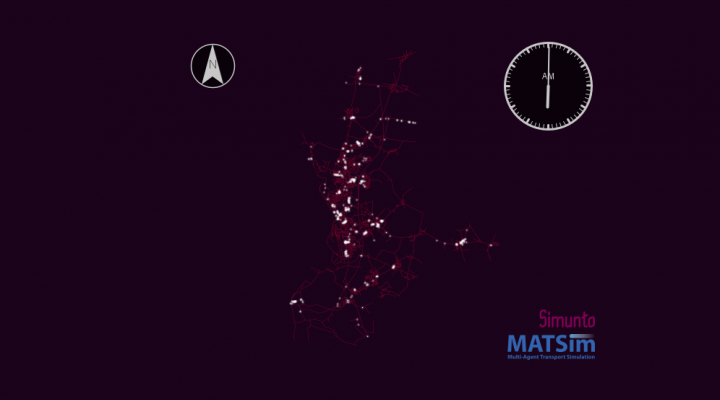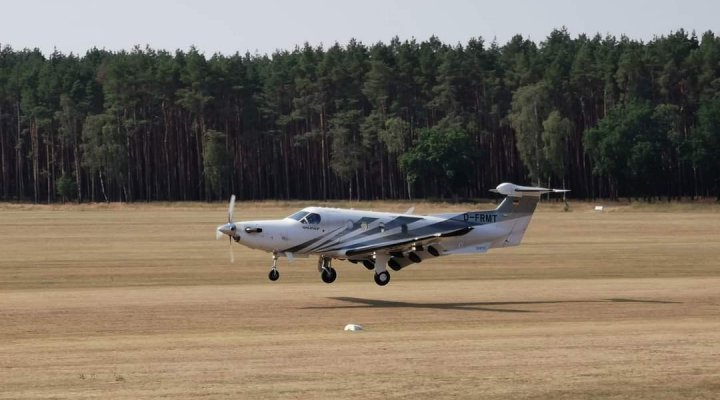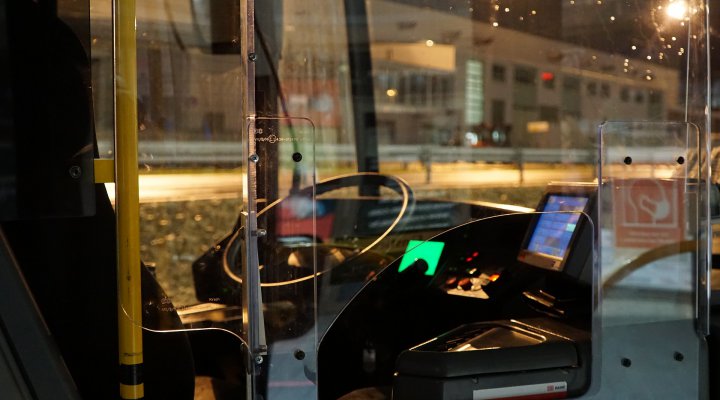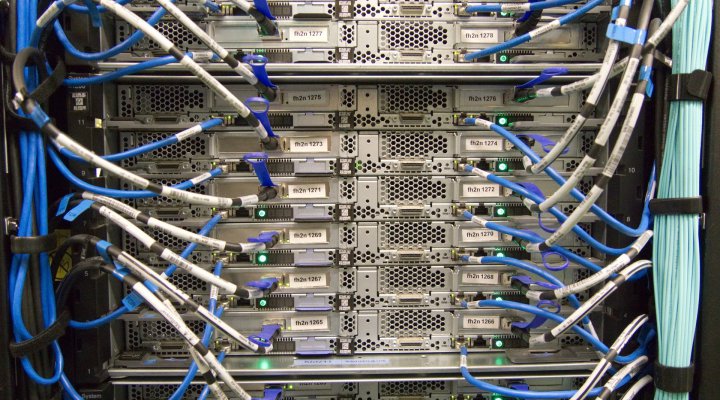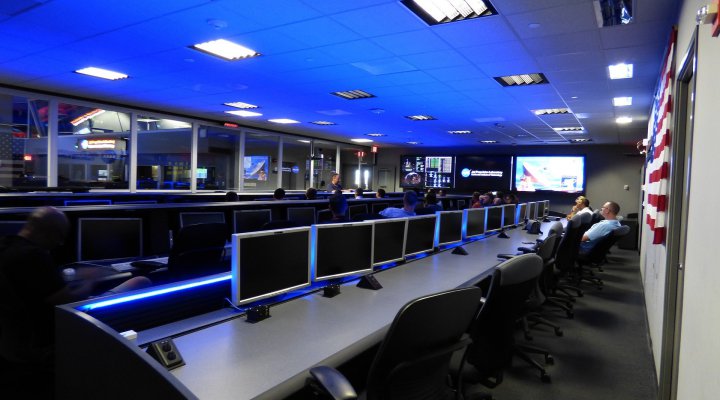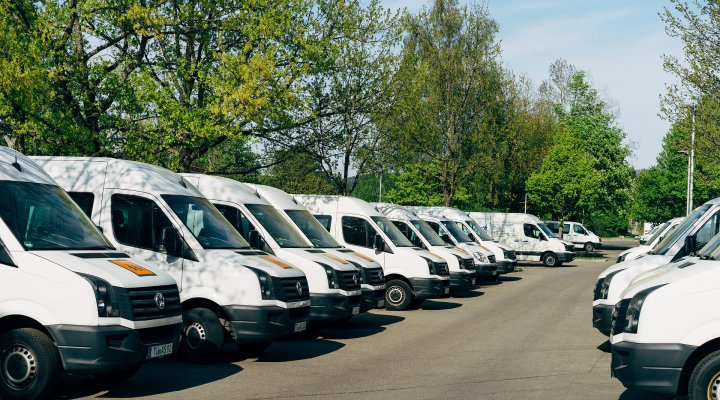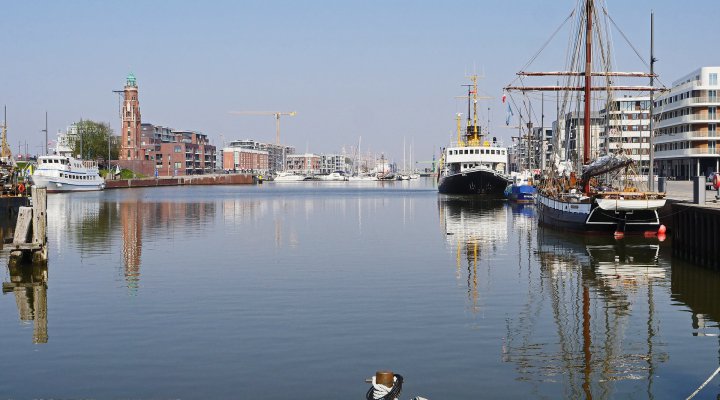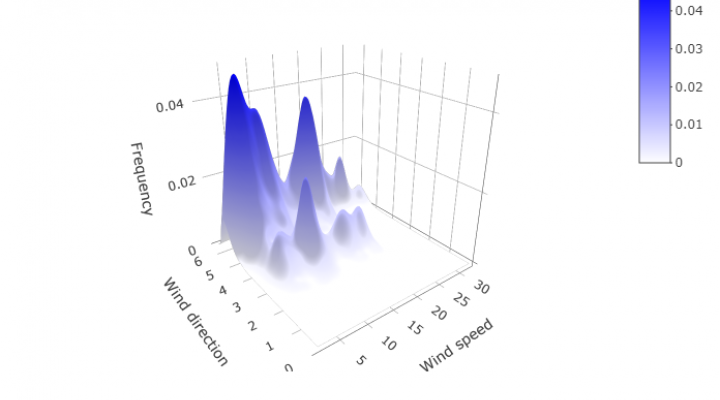Sustainability research of ecophysical systems.
We deal with questions that search for a more efficient and sustainable use of resources. In the research fields of transportation, energy and public health, we apply components from disruptive technologies and digitization for a more sustainable future. Therefore, we lay our focus on human-machine interaction.
Our Research fields
Transport
Strengthening public transport is an essential contribution to the mobility turnaround. Digitization enables a better understanding between supply and demand.
Technology Economics
Economic development also depends heavily on the regions` capacity for innovation. Individual technologies or the interaction of various technology players creates an environment in which disruptive technologies trigger structural changes.
Applied Artificial Intelligence
Due to the large amount of data from the areas of transportation and energy, we use artificial intelligence to analyze it. New use cases for artificial intelligence are emerging in the process.
Energy
Wind energy is the backbone of renewable energies in Europe. The high fluctuation of this energy source is one of the main problems to be solved. Accordingly, complementary technologies and smart power grids are promising approaches.
Public Health
The combination of methods from the transport sector and the inclusion of digital technologies enable new applications in the field of public health. In this context, it is possible to take a look at the micro level and to model regions in a targeted manner.
Finance
Renewable energies lead to strong fluctuations on the markets. Accordingly, these have to be analyzed and understood more precisely in order to supply the economy with energy and to maintain its functionality.
Microeconomics
The behavior of individuals and firms in decisions about the allocation of scarce resources is studied in economic models. Thus, microeconomics forms the theoretical basis of the other research fields.
Economic Policy and Management
Transport, energy and public health are among the biggest infrastructure issues for a state. Accordingly, our research is closely related to the economic policy of a state or the management of a company. Therefore, we develop recommendations for these actors according to our models and data.
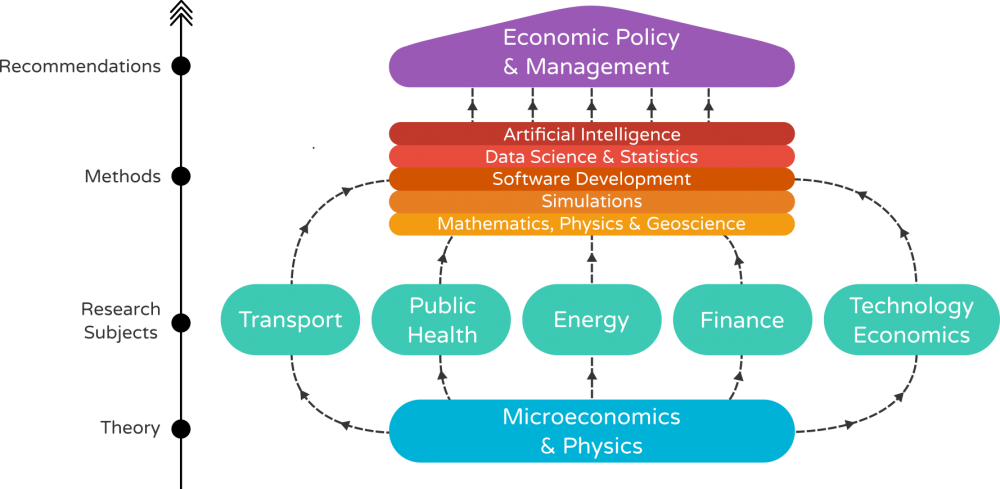
-
The latest press releases
Diskussion über Nachfolge des 9-Euro-Tickets
-
The latest press releases
Kein Klimaschutz durch 9-Euro-Ticket?
9-Euro-Ticket führt zu mehr Verkehr
Bund und Länder beraten zu 9-Euro-Nachfolgeangebot
9-Euro-Ticket: Die öffentlichen Verkehrsmittel kommen an
29.07.2022 @ ARD-Mittagsmagazin
9-Euro-Ticket: Deutsche würden viel mehr Geld dafür ausgeben
-
The latest press releases
Kann das 9-Euro-Ticket den Verkehr nachhaltig verändern?
Verkehrsforscher zu Neun-Euro-Ticket: "Viele Leute denken um"
Survey on willingness to pay and price perception of the 9-Euro-Ticket launched
02.06.2022 @ Newsportal TU Dresden
Wie sinnvoll ist das Entlastungspaket?
01.06.2022 @ Hallo Niedersachsen
Forscher bauen digitalen Zwilling für Bremerhaven
-
The latest press releases
Südniedersachsenprogramm hat Region voran gebracht
20.11.2020 @ Göttinger Tageblatt
Gibt es "Ridepooling"-Angebote bald auch auf dem Land?
18.06.2020 @ Göttinger Tageblatt
Gibt es "Ridepooling"-Angebote bald auch auf dem Land?
Der EcoBus in Afrika: Umsetzbar oder nicht?
13.11.2019 @ StadtRadio Göttingen
Ecobus soll ab Winter im Kreis Goslar fahren
-
The latest press releases
EcoBus präsentiert Ergebnisse der zweiten Testphase
23.08.2019 @ StadtRadio Göttingen
EcoBus geht in neue Testphase
22.08.2019 @ Göttinger Tageblatt
Stiftung: Förderprogramm bringt die Region voran
Ecobus-Test endet - Nachfrage größer als erwartet
Eco-Bus-Projekt endet – Nachfrage größer als erwartet
-
The latest press releases
Ecobus ist "günstiges Taxi" und "löst unsere Probleme nicht"
Ecobus ist wegen hoher Nachfrage oft zu spät.
MPI Göttingen: Frühere und nur noch einmalige Buchung für Ecobus
07.12.2018 @ Göttinger Tageblatt
Ecobus begeistert, ist aber nicht rentabel
Große Bühne für Sieger Innovationspreises
-
The latest press releases
Innovationspreis: Drei Preise gehen an Harzer Unternehmen
Per Algorithmus über die Dörfer
Projekt Ecobus: "Ganz einfach" klappt das noch nicht so ganz
Ecobus soll Probleme in der Mobilität lösen
Max-Planck-Institut testet Sammelbus 2.0 im Harz
-
The latest press releases
Ecobus als Chance, die Mobilität im Harz zu verbessern
Startschuss für den Eco-Bus fällt in Clausthal
Ohne Auto auch auf dem Land mobil?
30.07.2018 @ Göttinger Tageblatt
Ministerpräsident Weil fährt mit Eco-Bus in Bad Gandersheim
03.07.2018 @ Göttinger Tageblatt
EcoBus fusst auf dem klassischen Rufbus
-
The latest press releases
Erste Erfahrungen mit dem „Eco-Bus“-Modellprojekt
01.07.2018 @ Göttinger Tageblatt
Die Zukunft braucht keine Haltestellen und Fahrpläne
Mobilität von morgen kann gar nicht anders organisiert werden
Mobilität von morgen kann gar nicht anders organisiert werden
Gibt es "Ridepooling"-Angebote bald auch auf dem Land?
-
The latest press releases
Ecobus ist gestartet - Osterode, Clausthal und Goslar folgen
Ecobus mit fünf Fahrzeugen unterwegs
12.06.2018 @ Göttinger Tageblatt
Mit dem EcoBus zu den Domfestspielen
07.04.2018 @ Einbecker Morgenpost
Das MPI-Forschungsprojekt Ecobus geht in seine erste Pilotphase
11.03.2018 @ Göttinger Tageblatt
Wenn der Autonome mit dem Burschenschaftler kocht
-
The latest press releases
Vom studentischen Dinnerhopping zum erwachseneren „Göttinger Dinner“
29.06.2017 @ StadtRadio Göttingen
Nicht passend und zu unflexibel
18.05.2017 @ Einbecker Morgenpost
Gemeinsam die Region verbinden
17.03.2017 @ Göttinger Tageblatt
Fragebogen zu Mobilitätswünschen
01.11.2016 @ Einbecker Morgenpost
Was bewegt Menschen in der Zukunft
-
The latest press releases
Suche nach Alternative zu Bussen und Taxis
22.09.2016 @ Göttinger Tageblatt
Ecobus soll Probleme im ländlichen Raum beheben
09.05.2016 @ Göttinger Tageblatt
Hochschulgruppe Students Network: Göttinger Dinner soll "Brücken bauen"
Our Research Projects
-
Transport Hubs in
Rural AreasIn times of passenger transport transformation, nodes that enable inter- and multimodality in the transport sector are becoming particularly important. New forms of mobility in the context of public transport are thus strongly emphasized on these starting and transfer points. Hence, these nodes need to be considered separately but at the same time in the overall spatial context of the region.
Transport Systems in
Rural AreasInnovation processes in mobility are spreading rapidly in urban areas. On the contrary, rural areas lag behind due to low demand and cumbersome revenue generation. Innovative solutions offer a chance to bring benefits of modern mobility into low density areas and altering current business models.
Public Transport in
Ageing SocietiesThe proportion of the population aged 60 and older in western countries is growing steadily. The mobility of older people is therefore of increasing importance, as this rapid growth can lead to serious traffic problems if, with increasing age, the deficites in driving skills become more pronounced. Up to now, public transport availability in rural regions is often centered around school hours and offers only reduced services throughout the rest of the day. Hence, these regions are facing new challenges and must adapt their structures accordingly.
-
Wind Structures
The most important energy source from the field of renewable energies in Europe is wind. Currently, wind can still be interpreted as a stochastic variable. Accordingly, we improve our understanding of wind structures with mathematical and statistical tools.
Energy Economics
Wind energy represents an important future economic sector due to the increasing interest in renewable energy worldwide. For this reason, wind turbine performance prediction is an important task for economists. Therefore, the field of energy economics is in a state of flux and offers a variety of new research questions.
Energy Trade
Wind energy is gaining an ever-increasing share in the electricity mix of many countries. Our goal is to estimate the wholesale price and thus provide planning certainty in the markets and reduce the impact of wind energy fluctuation. For these analyses, we treat offshore and onshore wind energy as variables to be considered and their impact on the European Energy Exchange. Using these models, we can identify various parameters and how they affect wholesale electricity prices.
-
Copenhagenize Cities
Currently, a gradual change in the perspective of cities can be observed worldwide due to global warming and the shortage of raw materials. With the signing of the Kyoto Protocol and the associated goal of the international community to slow global warming to a maximum of 2 degrees Celsius compared to pre-industrial levels, the world has committed itself to taking effective steps to reduce greenhouse gas emissions. Consequently, the bicycle is gaining ground as a sustainable, CO2-neutral means of transport. because of its potential to replace motorized transport and contribute to climate protection and quality of life.
Cost Benefit in Transportation
Interdisciplinarity is an essential key to the effectiveness of innovations and technologies. Accordingly, the aim of this work is to evaluate the potential of transport systems from an economic point of view and thereby generate recommendations. Digital approaches enable new options for an optimal interaction of these disciplines.
Transport in Metropolitan Areas
Transportation in the megacities has a multitude of problems. One of the core problems is the inadequate public transportation system which leads to a multitude of other problems such as extreme traffic congestion, long commute times, air pollution or even fatal traffic accidents. The external cost of these consequences is a high damage to the economic development of these cities. With the continuous growth of these cities, this research area is continuously gaining importance to provide for a more sustainable world.
-
Transport Behaviour, Gamification and Nudging
One of the biggest challenges in the mobility transition is human behavior. This is influenced by many different factors and must be considered accordingly for special requirements. This makes it easier to derive more efficient and better economic models and policy implications for these requirements. Our goal here is to enable more sustainable transport behavior. Extrinsic incentives and monetary incentives could be a solution for this. Therefore, such concepts have to be identified and tested in experiments.
Agent Based Simulations and Policy Recommendations for Epidemics in the Global South
The People´s Republic of China was the first region to be affected by a global pandemic outbreak in January 2020. COVID-19 spread quickly around the globe, presenting the international community with new dimensions of economic, social and moral problems. Countries responded by making macroscopic decisions for their nations. The individual regions were not equipped with the appropriate applications to be able to act regionally. Accordingly, micro-management decision support tools could be developed by us to advise the regional decision makers.
New Business Concepts for Public Transport
On-going digitization has already produced numerous disruptive innovations, with many more to follow. The transportation sector is particularly affected by these innovations, whether through drones, autonomous vehicles or the digitization of public transport. New business models must be developed and adapted accordingly.
-
Demand Responsive Transport Systems in rural Areas (EcoBus)
Demographic change is prevalent in rural regions against the backdrop of an aging society as well as out-migration due to a lack of employment opportunities and poor infrastructure. Given a fixed budget for transport operators, declining demand leads to high operating costs per transported customer. This makes the provision of public transport economically inefficient and people in rural areas become highly dependent on private motorized transport. Therefore, public transport needs to be transformed through digitization measures. For this purpose, the DRT system EcoBus was developed for rural areas as a door-to-door system.
Socio-Economic Optimisation of Public Transport Systems in Africa
While urbanization and population growth are expanding city boundaries, public transportation systems are required to accompany this process in order to provide accessible public transport. The results of this study provide a basis for further analyses of public transport systems around the world to determine deficiencies in parameters and service design. It also contributes to the toolkits for the assessment of public transport services within a city and provides guidelines for political processes.
Corporate Mobility Management
The scope and tools of modern corporate mobility management concepts go far beyond pure business travel. Changing mobility needs and digital solutions enable intelligent networking and efficient coordination of different mobility needs and affect other business areas such as corporate social responsibility. Smart and tailored mobility management can create cost-efficient, sustainable and attractive offers for employees and the region.
-
Simulations for future Transport Systems
Disruptive developments in automated driving systems, new drive concepts and digital mobility are shaping the way people in rural and urban areas. In combination with these technical potentials, novel mobility concepts can improve people`s everyday mobility of people in terms of both cost efficiency and sustainability. In addition, the challenges of demographic change and urbanization can be and negative developments can be mitigated.
AI for Aerospace Technology
A major driver of climate change is flying, so we are striving to make this more sustainable. in doing so, we are focusing on researching the effects of operating conditions on aircraft engines to improve the timely planning of maintenance events and optimize them. To do this, we use machine learning mainly with time series of aircraft engines and numerical weather prediction models. The research aims to improve fuel efficiency and increase component longevity. This should enable plant operators and service providers to reduce costs and environmental footprint.
Smart SH
In a comparison of the German states, Schleswig-Holstein scores below average on indicators such as gross domestic product per employee and research and development spending. One possible remedy against such scenarios is to provide impetus for technological innovations that have an impact on both economic growth and industrial development.
-
Door to Door DRT System
The most flexible DRT system is a door-to-door service. This offers a high degree of flexibility and thus ensures a comprehensive understanding of the user`s routes. Accordingly, such a system can also achieve a high degree of customer satisfaction, as there is no need to change. Depending on the system, the pooling rate and the resulting detours can be problematic.
Demand Responsive Transport Systems in Urban Areas (Flexa)
The most flexible DRT system is a door-to-door service. This offers a high degree of flexibility and thus ensures a comprehensive understanding of the users routes. Accordingly, such a system can also achieve a high degree of customer satisfaction, as there is no need to change. Depending on the system the pooling rate and the resulting detours can be problematic.
-
Our most recent publications
Sörensen, L., & Schlüter, J. (2021). How do contract types and incentives influence driver behavior?− An analysis of the Kigali bus network. Humanities and Social Sciences Communications, 8(1), 1-11.
doi:10.1057/s41599-021-00896-6
Wacker, B., & Schlüter, J. C. (2021). Pipeline for Annual Averaged Wind Power Output Generation Prediction of Wind Turbines Based on Large Wind Speed Data Sets and Power Curve Data. MethodsX, 8, 101499.
Kersting, M., Bossert, A., Sörensen, L., Wacker, B., & Schlüter, J. C. (2021). Predicting effectiveness of countermeasures during the COVID-19 outbreak in South Africa using agent-based simulation. Humanities and Social Sciences Communications, 8(1), 1-15.
-
Our most recent publications
Schlüter, J. C., Simons, J., Sörensen, L., & Coetzee, J. (2021). Optimierung von Minibustaxiverkehren in Südafrika unter Einbindung von Geoinformationssystemen, Standort 45, 96–101.
doi:10.1007/s00548-020-00694-3
Schlüter, J., Bossert, A., Rössy, P., & Kersting, M. (2021). Impact assessment of autonomous demand responsive transport as a link between urban and rural areas. Research in Transportation Business & Management, 39, 100613.
doi:10.1016/j.rtbm.2020.100613
Minnich, A., Rau, H. A., & Schlüter, J. C. (2021). The effects of gift vouchers and environmental certificates on the demand for a collective DRT system. Transportation, 1-32.
-
Our most recent publications
Knierim, L., & Schlüter, J. C. (2021). The attitude of potentially less mobile people towards demand responsive transport in a rural area in central Germany. Journal of Transport Geography, 96, 103202.
doi:10.1016/j.jtrangeo.2021.103202
Kersting, M., Kallbach, F., & Schlüter, J. C. (2021). For the young and old alike–An analysis of the determinants of seniors’ satisfaction with the true door-to-door DRT system EcoBus in rural Germany. Journal of Transport Geography, 96, 103173.
doi:10.1016/j.jtrangeo.2021.103173
Hahn, A., Frühling, W., & Schlüter, J. (2021). Using open-source high resolution remote sensing data to determine the access to buildings in the context of passenger transport. In EGU General Assembly Conference Abstracts (pp. EGU21-9408).
-
Our most recent publications
Jokinen, J.-P., Sörensen, L., Schlüter, J. C. (2021), Public transport in low density areas. In: Vickerman, Roger (eds.) International Encyclopedia of Transportation. vol. 1, pp. 589-595. UK: Elsevier Ltd.
doi:10.1016/B978-0-08-102671-7.10628-1
Bossert, A., Kersting, M., Timme, M., Schröder, M., Feki, A., Coetzee, J., & Schlüter, J. (2021). Limited containment options of COVID-19 outbreak revealed by regional agent-based simulations for South Africa. F1000Research, 10(98), 98.
doi:10.12688/f1000research.28250.1
Eisen, M., Poddig M., Seebass J. V., Hackelberg, F., Wacker, B. & Schlüter, J. C. (2021) Rising Inequality and Spatial Social Segregation due to Urbanization and Increasing Housing Prices, Research Square.
-
Our most recent publications
Wacker, B., & Schlüter, J. C. (2021). A cubic nonlinear population growth model for single species: theory, an explicit–implicit solution algorithm and applications. Advances in Difference Equations, 2021(1), 1-29.
doi:10.1186/s13662-021-03399-5
Schlüter, J. C., Sörensen, L., Bossert, A., Kersting, M., Staab, W., & Wacker, B. (2021). Anticipating the impact of COVID19 and comorbidities on the South African healthcare system by agent-based simulations. Scientific Reports, 11(1), 1-9.
doi:10.1038/s41598-021-86580-w
Schröder, M., Bossert, A., Kersting, M., Aeffner, S., Coetzee, J., Timme, M., & Schlüter, J. (2021). COVID-19 in South Africa: outbreak despite interventions. Scientific Reports, 11(1), 1-9.
-
Our most recent publications
Simons, J., Wacker, B., Bossert, A., & Schlüter, J. C. (2020), Verkehrsökonomische Analyse von Minibustaxiverkehren in der Metropolregion Kapstadt und der Minenstadt Rustenburg in Südafrika, Zeitschrift für Verkehrswissenschaft, 91, 1-27.
Kersting, M., Matthies, E., Lahner, J., & Schlüter, J. (2020). A socioeconomic analysis of commuting professionals. Transportation, 1-32.
doi:10.1007/s11116-020-10124-w
Sörensen, L., Bossert, A., Jokinen, J. P., & Schlüter, J. (2020). How much flexibility does rural public transport need?–Implications from a fully flexible DRT system. Transport Policy, 100, 5-20.
-
Our most recent publications
Grunicke, C., Schlüter, J. C., & Jokinen, J.-P. (2020). Evaluation methods and governance practices of new flexible passenger transport projects. Research in Transportation Business & Management, 100575.
doi:10.1016/j.rtbm.2020.100575
Wacker, B., & Schlüter, J. C. (2020). An age- and sex-structured SIR model: Theory and an explicit-implicit numerical solution algorithm. Mathematical Biosciences and Engineering, 17, 5752-5801.
Wacker, B., & Schlüter, J. C. (2020). Time-continuous and time-discrete SIR models revisited: theory and applications. Advances in Difference Equations, 2020: 556.
-
Our most recent publications
Wacker, B., Seebaß, J. V., & Schlüter, J. C. (2020). A modular framework for estimating annual averaged power output generation of wind turbines. Energy Conversion and Management, 221: 113149.
doi:10.1016/j.enconman.2020.113149
Lichter, J., Hosius, E., Wacker, B., & Schlüter, J. C. (2020). Der Einfluss von Offshore-Windenergie auf die EEX-Strompreise. Zeitschrift für Energiewirtschaft, 44, 85-99.
doi:10.1007/s12398-020-00276-8
Nyga, A., Minnich, A., & Schlüter, J. C. (2020). The effects of susceptibility, eco-friendliness and dependence on the Consumers’ Willingness to pay for a door-to-door DRT system. Transportation Research Part A, 132, 540-558.
-
Our most recent publications
Schlüter, J. C., Frewer, M., Sörensen, L., & Coetzee, J. (2020). A stochastic prediction of minibus taxi driver behaviour in South Africa. Humanities and Social Sciences Communications, 7: 13.
Harbering, M., & Schlüter, J. C. (2020). Determinants of transport mode choice in metropolitan areas the case of the metropolitan area of the Valley of Mexico. Journal of Transport Geography, 87: 102766.
doi:10.1016/j.jtrangeo.2020.102766
Matthies, E., Preuß, S., Lahner, J., & Schlüter, J. C. (2019). Alternative Bedienformen im ÖPNV. Implikationen für den Planungsprozess. Zeitschrift für Verkehrswissenschaft, 90, 21-47.
-
Our most recent publications
Kern, L., Seebaß, J. V., & Schlüter, J. C. (2019). Das Potenzial von vertikalen Windenergieanlagen im Kontext wachsender Flächennutzungskonflikte und Akzeptanzprobleme der Windenergie. Zeitschrift für Energiewirtschaft, 43, 289-302.
doi:10.1007/s12398-019-00264-7
Lahner, J., Schlüter, J. C., & Sörensen, L. (2019). Digitalisierung im ÖPNV: vom Rufbus zu einem intelligenten nachfrageorientierten System im ländlichen Raum. Neues Archiv für Niedersachsen, II/2019, 178-191.
Avermann, N., & Schlüter, J. C. (2019). Determinants of customer satisfaction with a true door-to-door DRT service in rural Germany. Research in Transportation Business & Management, 32: 100420.
-
Our most recent publications
Gebauer, A., Fingerhut, J., Lahner, J., & Schlüter, J. C. (2019). Verkehrsanbindung von Berufsschülern. Standort, 43(1), 9-19.
Our Developed Software
-
Driver Client for a DRT System
The software guides and informs the driver about routes and bookings and other information..
-
AddModCopula package
Within the package, we propose anadditive regression model to describe the respective relationship between the copula data and external information.
